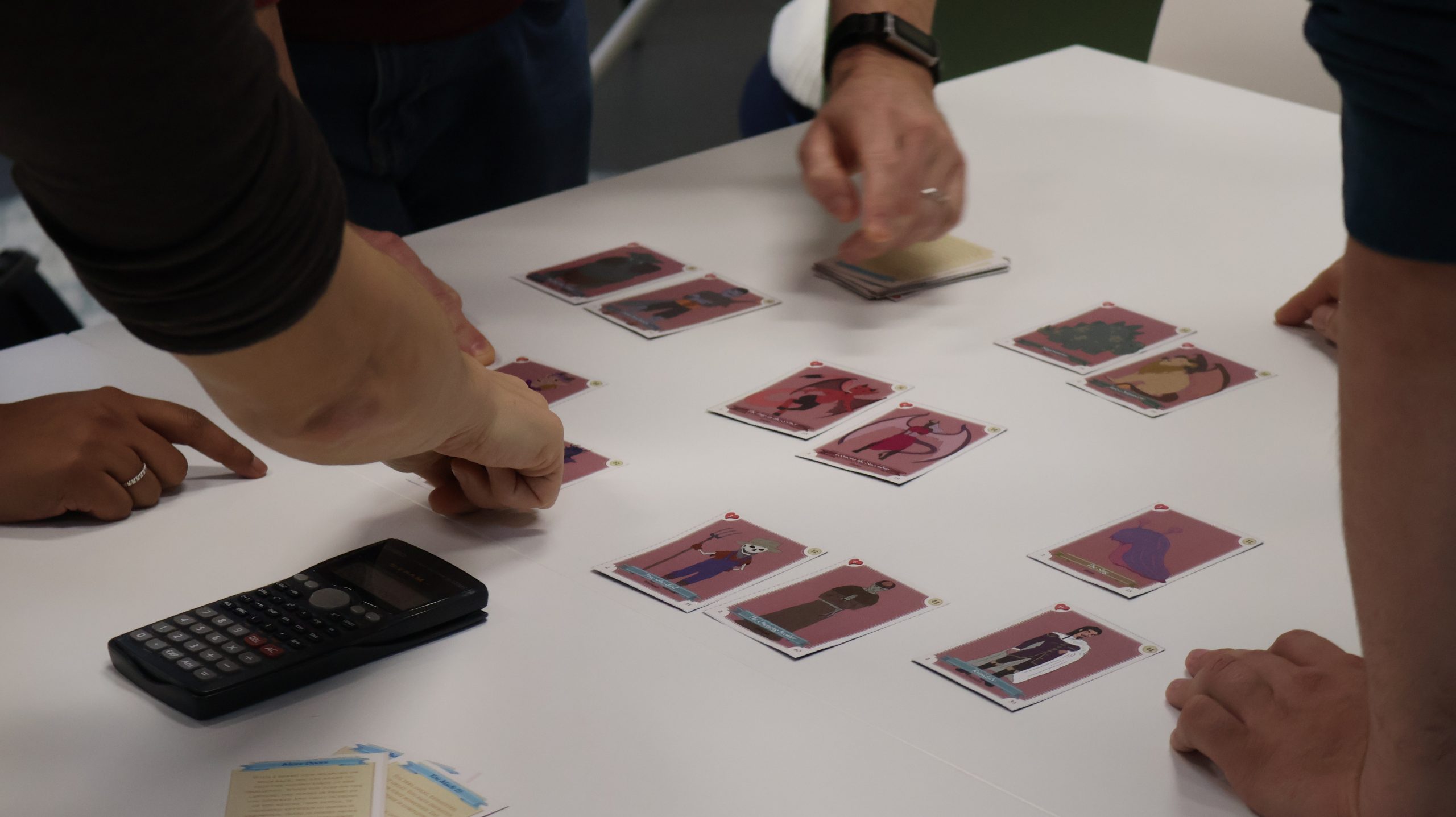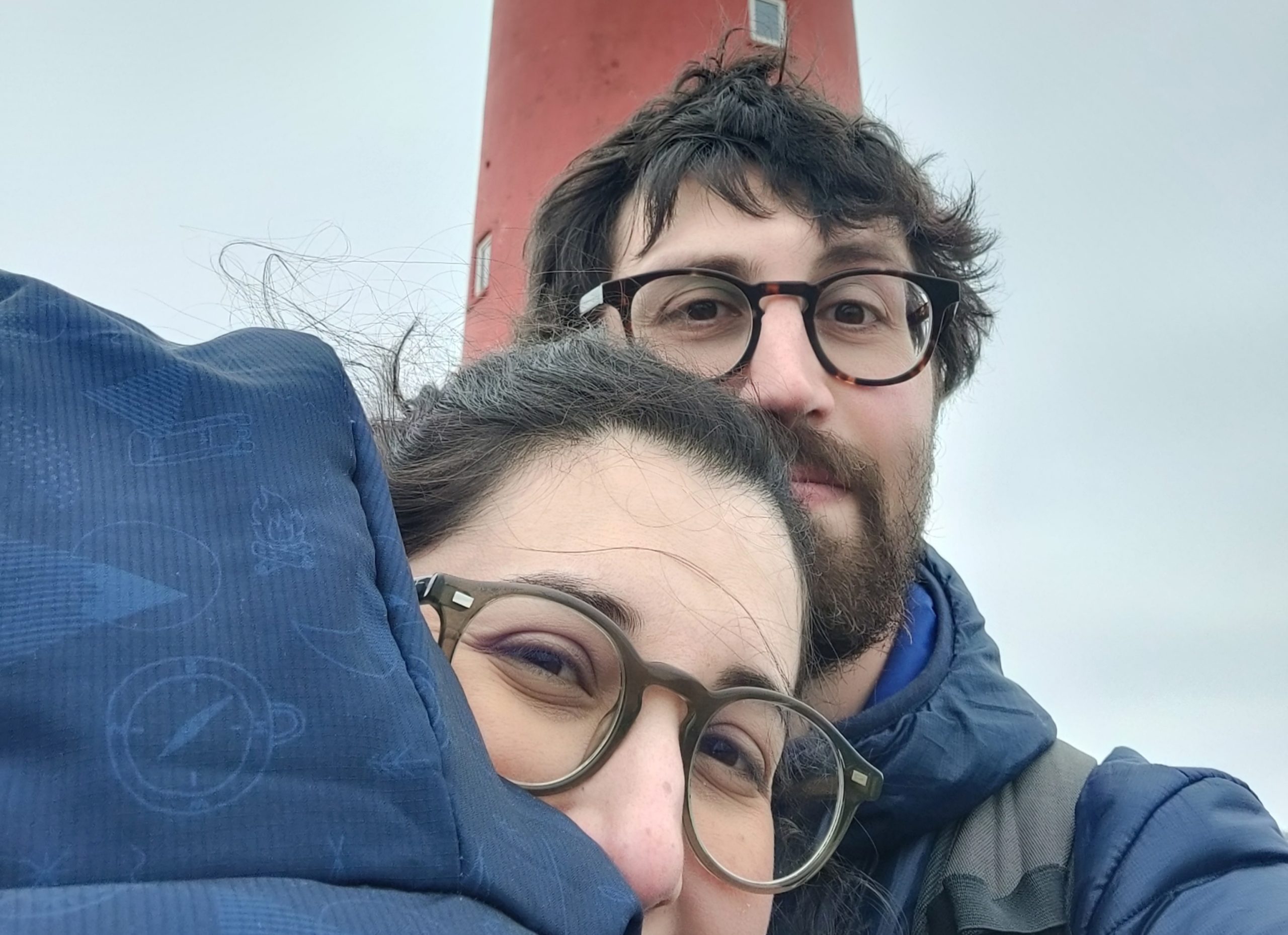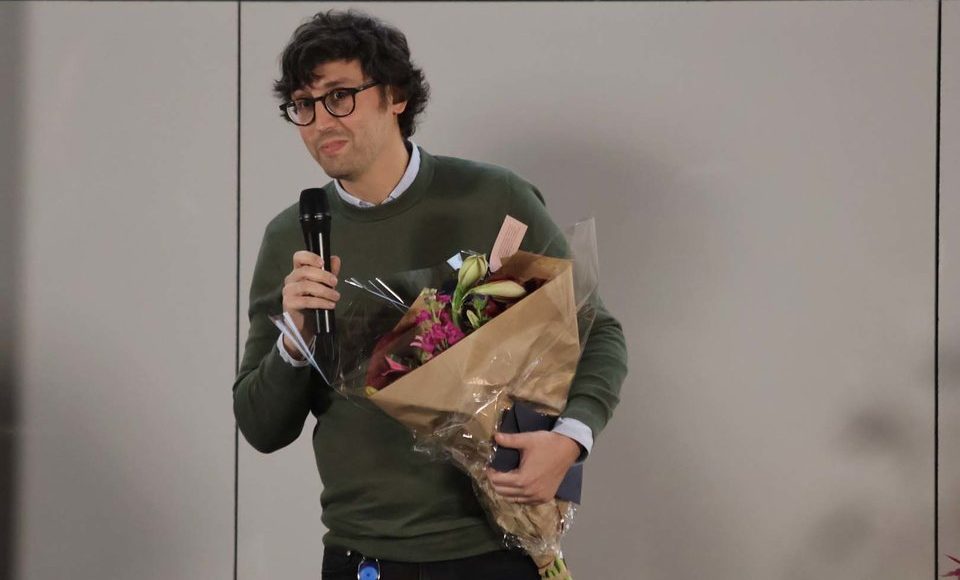Assistant Professor Alessandro Bombelli (Aerospace Engineering) is TU Delft’s Teacher of the Year. Delta asked him for exam tips. “Concentrate on the material rather than on the exam.”
(Photo: Teaching Academy TU Delft)
Every year, the study associations at each faculty nominate an Educator of the Year. Vice-Rector Magnificus Rob Mudde and Teaching Academy Director Annoesjka Cabo then select the TU Delft Teacher of the Year. This year it is Alessandro Bombelli (Faculty Aerospace Engineering). Delta asked him about his method of teaching, tips for the exam week, and his plans for the future.
How do you retain students’ attention?
“I try to use a lot of humour, though you do need to appreciate my jokes. For me the most important thing is to act as a kind of bridge. Students sometimes feel very distanced from TU Delft so I try to close that gap. I try to be empathetic, remember their names, and understand them. For me, the best thing is when I take the time to explain something to a student one-on-one and see the penny drop. I see their eyes light up and see that they now understand it. I also like using memes and games during my lessons.”
What lessons do you give?
“I teach four subjects to bachelor, minor and master students. I am also a coach in project groups. Mathematical formulas and algorithms are part of a lot of lessons, such as those in the Operations Optimisation master’s. The students learn to use mathematical formulas to optimise processes. One example is how to transport goods from several places to their destinations while keeping transport costs as low as possible and meeting the requirements of the clients.”
You mentioned memes. How do you use them in your lessons?
“My presentations contain all sorts of memes that I find online. While there is a lot of rubbish on the internet, you can also find really fun things. If I have students play a game, one of the things I do is to announce it using Jigsaw, the character from the Saw horror films. His famous quote is ‘Let’s play a game’.”
‘Games help my students understand why they use a mathematical formula’
And the games? Are they just for fun or do students learn something?
“If I use games it’s always to help students understand something better and to show them the whole situation. This helps them understand why they use a mathematical formula.

One of the games is a card game in which they are adventurers and have to beat opponents such as monsters. You lose life points every time you beat an opponent, but you get reward points back. So you need to think which opponents you should beat to get as many rewards as you can without dying.
The first round is doable, but the ones after that are so complicated that you need algorithms to help you decide. Hopefully this helps students see the added value of well-written algorithms. The card game is a variant of the Knapsack problem where you need to accumulate as many items of value in a knapsack without exceeding the weight limit.”
Are you a fan of games yourself?
“I’m not a diehard fan, but do enjoy playing games once in a while. My favourite is Codenames, a card game where you get your team to guess several games using a cleverly chosen word, the code name. You need to be creative and understand how your teammates think.
By the way, I did not design all the games in my lessons. A small grant from the Library let me approach the Gamelab at the Faculty of Technology, Policy and Management. I came up with the idea that the game should be about the Knapsack problem and they thought up the story, designed the cards and produced the game.
I did design another game though, about the bin packing problem. Students are asked to fit squares and rectangles as efficiently as possible in a large rectangle. The squares and rectangles represent things like luggage and the larger rectangle the cargo space of an aeroplane.”
‘Concentrate on the material rather than the exam’
The study halls are full of students slaving away. Do you have any exam tips for them?
“It’s been quite a while since I was a student. My main tip may not be the easiest, but here goes. Concentrate on the material rather than on the exam. So don’t only learn the formulas that you expect at the exam, but really try to understand the bigger picture of the material.
This will help you keep things straight when a mathematical formula is presented differently in the exam than in the lesson. And don’t be afraid to ask questions. If you don’t understand it, your classmates probably don’t either.

And most important, don’t forget to enjoy it. Yes, exam time is stressful. And yes, studying can be very draining. But it is also a fabulous time. You start in your late teens and when you graduate you are almost adult. Along the way you experience new things with other students. I still cherish those years. I met my wife and made some of my best friends when I was studying.”
You teach more subjects than most assistant professors. How do you make sure that you have enough time for both teaching and research?
“That’s true. Most teach two subjects. I teach four or five. Luckily my department lets me spend more time on teaching. It varies every quarter, but in general I spend 60% of my time on teaching and 40% on research.
Teaching is very satisfying. It’s not a bed of roses every day, of course, but it gives me a lot of energy. It keeps me on my toes. At the same time, I could not do without the research. Research keeps my mind active. You always need to take that one extra step to remain innovative.”
An Educator of the Year receives EUR 5,000 in prize money. What will you spend it on?
“That reminds me, I still need to give the bank account number of my department to the Teaching Academy so that it can transfer the money. Officially the money is for my department, but I hope to use it for a project that I have been working on for a while with my colleagues. It’s an open access book about optimisation and I would like to hire a teaching assistant to help improve it. Or perhaps I will buy something for the whole department, like equipment to record online lessons properly.”
- Bombelli has well-known predecessors such as Christien Janssen (Architecture, 2022) Tom Burdyny (Applied Sciences, 2021), Joris Melkert (Aerospace Engineering, 2019), Calvin Rans (Aerospace Engineering, 2018) and Giulia Calabretta (Industrial Design Engineering, 2017).
Alessandro Bombelli came to TU Delft in 2017 and was initially a post-doc at the Faculty of Civil Engineering and Geosciences. After that he joined the Faculty of Aerospace Engineering where one of his projects is carrying out research in collaboration with KLM Cargo. Bombelli teaches four subjects – including Air Transportation and Physics – and lives with his wife and daughter in Delft.
Do you have a question or comment about this article?
a.m.debruijn@tudelft.nl


Comments are closed.